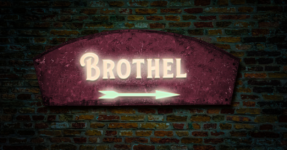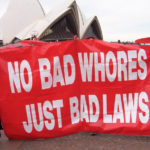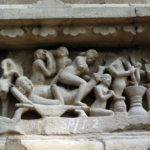The Rules Regarding the Legality of Brothels in New South Wales

Are you considering engaging in sex work in New South Wales? Or perhaps establishing a brothel in our state?
Or maybe are you’re employed as a sex worker and have concerns about the legality of your workplace? Or perhaps you fancy yourself an aspiring madam?
Registered brothels in New South Wales
Brothels are legal in New South Wales, but only if certain conditions are met.
Understanding both the approval process for brothels and the legal obligations of their owners and operators can mean the difference between a lucrative career and a criminal record.
So, here’s a basic rundown of the rules.
Sex work has been decriminalised in NSW
In 1995, New South Wales became the first jurisdiction in Australia to decriminalise most aspects of sex work.
Prior to this, sex work laws had seesawed between times of liberalisation and “crackdowns” on sex workers, driven by the heated politics of the twentieth century.
Sex work (who some call “prostitution”) is defined under section 3 of the Summary Offences Act 1988 (NSW) as encompassing acts of prostitution between persons of different sexes or of the same sex that include either sexual intercourse or masturbation for payment.
Under the Crimes Act 1900 (NSW) sexual activity encompasses vaginal, anal and oral sexual intercourse, as well as masturbation and the use of sex toys.
Many non-penetrative forms of BDSM don’t seem to fit the definition, but may have their own legal restrictions. Sex acts performed producing pornography will count as “prostitution” under state law.
As sex work is decriminalised, anyone over 18 may legally provide sexual services to a person over the age of consent (which is 16 years in NSW) in exchange for money, goods or favours.
Street-based sex work is also allowed, although a sex worker cannot solicit work near a dwelling, school, church or hospital.
Establishing a brothel
Brothels in NSW are regulated by the Restricted Premises Act 1943 (NSW) (the Act) as well as the local environmental plans of local councils.
And there are several offences in the Summary Offences Act 1988 (NSW) which criminalise conduct relating to unregistered brothels.
For example, section 15 of the Summary Offences Act makes it an offence to live wholly or in part on the earnings of “prostitution”, unless the earnings are derived from working, managing or owning a brothel.
A brothel includes anywhere sex work occurs, has occurred and will likely occur in future and includes premises represented to be, or advertised as, a brothel.
Private sex workers who provide “in calls” to either their own home or another place, should be aware that this could legally be classified as a brothel. However, many local councils also have separate categories for “home occupation sex services premises” which could apply.
Starting a brothel requires making a development application to the local council in which the premises plans to operate. Some local councils are more stringent on brothels than others. For example, in some local government areas brothels can only operate in industrial areas.
Generally, the application process involves:
- Ensuring zoning restrictions in an area allow for a brothel to operate in the chosen location.
- Obtaining written consent from the building owner that the venue is able to be used as a brothel.
- Lodging a formal development application
Brothels cannot be operated next to or directly opposite churches, daycare or child-minding centres, primary and secondary schools, parks, playgrounds or other places children frequent.
Criminal history checks or associate checks are not required for owning or operating a brothel in NSW.
Owning and operating a brothel that hasn’t been approved by local council is against the law.
Local councils have a suite of powers under the Environmental Planning and Assessment Act 1979 (NSW) (EP&A Act) and the Restricted Premises Act to issue compliance orders, brothel closure orders and utilities order (which cut of utilities supplies to premises) in cases of illegal brothels.
Hefty fines apply to non-compliance with zoning laws or orders made by local councils to comply with development plans.
If an illegal brothel is declared a “disorderly house” under the Restricted Premises Act, it is an offence punishable by 6 months in prison and/or a $5,500 fine to own or occupy the premises.
If a court has declared that the disorderly house is connected to reputed criminals or associates, penalties for either owning or occupying the premises jump to 3 years in prison and/or a fine of up to $15,000.
It is also illegal to present or advertise a brothel as a different kind of business such as a massage parlour, photography studio, gym, karaoke bar or nail salon.
Operating a brothel
Owning and operating a brothel business carries with it a number of unique obligations, which are often enforced through criminal law.
New South Wales brothel operators must not:
- Advertise their business (section 18 Summary Offences Act)
- Sell alcohol on the premises (or be licensed to do so). However, complementary alcohol may be served.
- Allow a minor under the age of 18 years to be on the premises (section 21D Summary Offences Act).
- Through coercive conduct or undue influence cause or induce another person to do sex work or to surrender the earnings of sex work (section 15A Summary Offences Act).
The Work Health and Safety Act 2011 and the Work Health and Safety Regulation 2017 set requirements for health and safety at work and cover every place of work in NSW, including sexual services premises.
You must not coerce anyone to work as a
The Work Health and Safety Act 2011 and the Work Health and Safety Regulation 2017 set requirements for health and safety at work and cover every place of work in NSW, including sexual services premises (SSP).
Working conditions must be in accordance with NSW industrial relations laws and you must consider the hours and days worked (including reasonable length shifts), breaks between shifts and leave provisions.
You must not coerce anyone to work as a sex worker, or request a sex worker to provide services that are outside their personal boundaries. You must also not prevent, or attempt to prevent, sex workers from using personal protective equipment, such as condoms.
As an owner or manager of any premises providing sexual services, you must also be aware of your duties required by the Public Health Act 2010.
Namely, Brothel operators must not allow a sex worker who has a “notifiable disease” (including most sexually transmitted diseases) to provide sexual services on the premises unless “reasonable precautions” are taken.
Depending on the disease, reasonable cautions could include taking prescribed antibiotic treatment for bacterial infections, using a condom, reduced viral load as a result of HIV treatment or ensuring clients are taking a course of pre-exposure prophylaxis (PrEP) or are vaccinated against hepatitis B.
Brothel operators also owe workers general obligations to ensure their occupational health and safety. Within the context of operating a brothel this could include providing security systems, personal protective equipment (including condoms and lubricant) and ensuring rooms within a brothel are safe and hygienic.
Serious criminal offences
More serious offences apply if a brothel owner is found to be engaging in child prostitution or sex trafficking.
Under section 91F of the Crimes Act 1900 (NSW) any person who is capable of exercising lawful control over premises at which a child participates in an act of child prostitution is liable to imprisonment for 7 years.
Also under the Crimes Act 1900, any person who causes sexual servitude (section 80D) or conducts a business involving sexual services (section 80E) is liable for 15 years imprisonment.
Sexual servitude is defined under section 80B of the Act as the condition of a person who provides sexual services and who, because of the use of force or threat, is not free to:
- Cease providing sexual services; or
- Leave the place or area where the person provides sexual services.
Additionally, the Commonwealth Criminal Code Act 1995 – which applies across the nation – contains discrete offences against sexual slavery (section 270) and sexual trafficking (section 271), which also carry heavy maximum sentences.
Receive all of our articles weekly
Related Articles
RELATED LEGISLATION
- Section 15 Summary Offences Act 1988 | Living on Earnings of Prostitution
- Section 15A Summary Offences Act 1988 | Causing or Inducing Prostitution
- Section 18 Summary Offences Act 1988 | Advertising Premises Used for Prostitution
- Section 21D Summary Offences Act 1988 | Minors in Sex Clubs
- Section 80B Crimes Act 1900 | Meaning of "Sexual Servitude"
- Section 80D Crimes Act 1900 | Causing Sexual Servitude
- Section 80E Crimes Act 1900 | Conduct of Business Involving Sexual Servitude
- Section 270 Criminal Code Act 1995 | Slavery and Slavery-like Offences
- Section 271 Criminal Code Act 1995 | Trafficking in Persons






